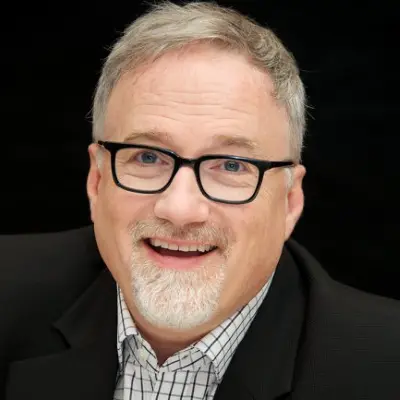David Fincher may be associated with filmmaking, but he'll best be remembered for kicking off Netflix's streaming revolution with House of Cards
-

"David Fincher was hardly the first name-brand auteur to try his hand at the small screen," says Alison Herman. "Most famously, David Lynch brought paranormal dread to primetime with Twin Peaks in 1989; Steven Spielberg directed multiple episodes of his NBC anthology Amazing Stories, with subsequent chapters helmed by Clint Eastwood, Martin Scorsese, and Danny DeVito. But Fincher is neither an irrepressible weirdo prone to counterintuitive career moves nor a middlebrow populist with a family-friendly sensibility. He is, in many ways, a textbook Film Director: an uncompromising visionary who makes dark, violent, and above all, precise movies for adults. Fincher is the last person you could picture taking notes from a network executive, or taking part in the logistical corner-cutting that marks so much of TV production, which naturally made him the first person an up-and-coming entertainment hub would call to signal they’re Not Like Other Networks. The political drama House of Cards set a mold we now recognize from more recent flagships like The Morning Show or The Mandalorian—a gauntlet-throw by a new service to signal there’s a new, amply funded player on the streaming scene. Back then, though, we hadn’t become jaded by multibillion-dollar parent companies throwing their weight around with movie stars and major IP. In 2011, it was legitimately shocking when a glorified rental service outbid the homes of Mad Men and The Sopranos to order two full seasons of a show starring an Oscar winner. Just as eye-catching as Kevin Spacey’s involvement was Fincher’s, an executive producer for whom House of Cards’ first two episodes would serve as follow-up to The Social Network." ALSO: Recalling David Fincher's lost HBO comedy Videosyncrazy.
TOPICS: David Fincher, Netflix, House of Cards
More David Fincher on Primetimer:- Mindhunter Deconstructed Its Protagonist in Its Final Episodes
- The Most Frustrating Loose End That Mindhunter Left Dangling
- Remembering When Holden Ford Came Close to Breaking Bad in Mindhunter
- BoJack Horseman creator responds to Dave Chappelle controversy by revealing a David Fincher joke Netflix forced him to cut to raise money for a trans charity
